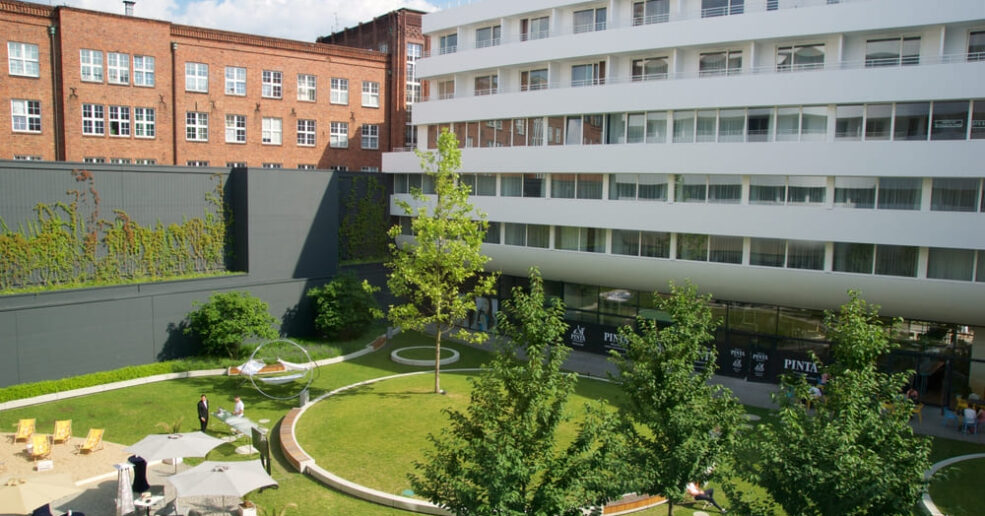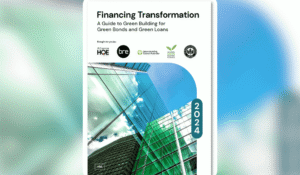Construction
In an industry-first, Melbourne-based multidisciplinary design studio Nexus Designs and students at Sacred Heart College in Geelong have joined forces to explore innovative biomaterials made from spent coffee grounds. Commencing in January 2024, the collaboration has seen 25 students from Sacred Heart College's Design Futures Lab take part in a series of workshops with the team of designers at Nexus Designs. With Australia throwing away over 80 tonnes of coffee grounds each year, the team have been harnessing circular economy and design principles to conceptualise, prototype and refine new biomaterials that can be used across the design and construction industries.…
New WorldGBC Board members to drive sustainable building initiatives
The World Green Building Council (WorldGBC) has announced the election of seven distinguished professionals to its Board of Directors, including two new members who bring fresh perspectives and expertise to the organisation. Michael Brooks, CEO of REALPAC from Canada, and Hugh Lim, Executive Director of the Centre for Livable Cities (CLC) from Singapore, were elected as new board members during WorldGBC's Annual General Meeting (AGM) in London on June 27, 2024. The AGM, which took place during the WorldGBC Leadership Summit 2024, Building the Transition, also saw the re-election of five existing directors for an additional two-year term. Prior to…
GBCA releases discussion paper on Scope 3 emissions reporting
The Green Building Council of Australia (GBCA) has released a discussion paper aimed at initiating a crucial dialogue within the property sector regarding the reporting and accounting of Scope 3 emissions. This move comes as part of a broader effort to drive large-scale emissions reductions in the real estate industry. Jorge Chapa, Chief Impact Officer at GBCA, emphasised the growing importance of Scope 3 emissions in reducing the real estate sector's carbon footprint. "Scope 3 are the largest and most elusive source of emissions for companies, and until now the property sector hasn't had much specific guidance on how to…
Cross-laminated timber emerges as sustainable solution for Australia
In a significant shift towards sustainable construction practices, cross-laminated timber (CLT) is gaining traction in Australia as an eco-friendly alternative to traditional building materials. This innovative wood product is poised to revolutionise the construction industry by reducing carbon emissions and promoting environmental stewardship. Thanh Huynh, R&D, Engineering, and Services Director at Knauf Gypsum, emphasises the critical importance of CLT adoption in Australia. "CLT offers an opportunity to leverage Australia's forestry industry sustainably, balancing ecological preservation with economic benefits," Huynh states. He highlights that CLT aligns with Australia's diverse architectural needs and rapid urban development, supporting faster construction timelines while minimising…
International alliance launches guide to unlock $35 trillion for green building investment
A coalition of leading green building organisations has unveiled a groundbreaking guide aimed at facilitating the $35 trillion investment needed by 2030 to meet global energy transition goals. The guide, titled Financing Transformation: A Guide to Green Building for Green Bonds and Green Loans, provides practical insights on leveraging building certification standards to comply with global classifications and bond frameworks. The initiative comes at a critical time, as buildings account for over 30 per cent of global energy use and more than a quarter of emissions. The International Energy Agency (IEA) warns that most existing buildings will still be standing…
New CIOB President Mike Kagioglou sets focus on SDGs in construction
The Chartered Institute of Building (CIOB) has announced Mike Kagioglou as its President for the 2024/25 term. Kagioglou, who is also the Pro Vice-Chancellor for Research and Business Innovation at De Montfort University in Leicester, aims to leverage his new role to emphasise the importance of the United Nations’ Sustainable Development Goals (SDGs) within the construction sector. Speaking at CIOB’s annual Members’ Forum event in Cape Town, South Africa, on June 25, Kagioglou highlighted the need for the construction industry to focus on building resilient infrastructure, promoting inclusive and sustainable industrialisation, and fostering innovation. “In 2015 — what seems like…
ACT government’s energy plan sets out an all-electric, zero-emission future
The ACT government has released the Integrated Energy Plan (IEP) 2024-2030 — which outlines the territory's next steps towards an all-electric, zero-emission future for Canberra. The IEP details the ACT's strategy for transitioning to net zero emissions over the next two decades, including government support for residents to adopt cheaper, cleaner energy sources. Andrew Fischer, Head of Policy and Research at the Green Building Council of Australia (GBCA) praised the ACT's investment in electrification. "The commitment by the ACT government to develop this clear policy direction supporting the safe, efficient and equitable transition to electrification for Canberra is commendable," Fischer…


















